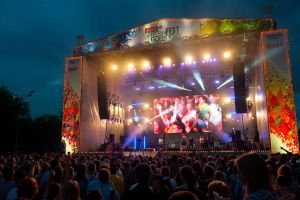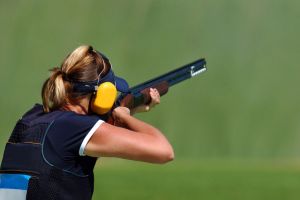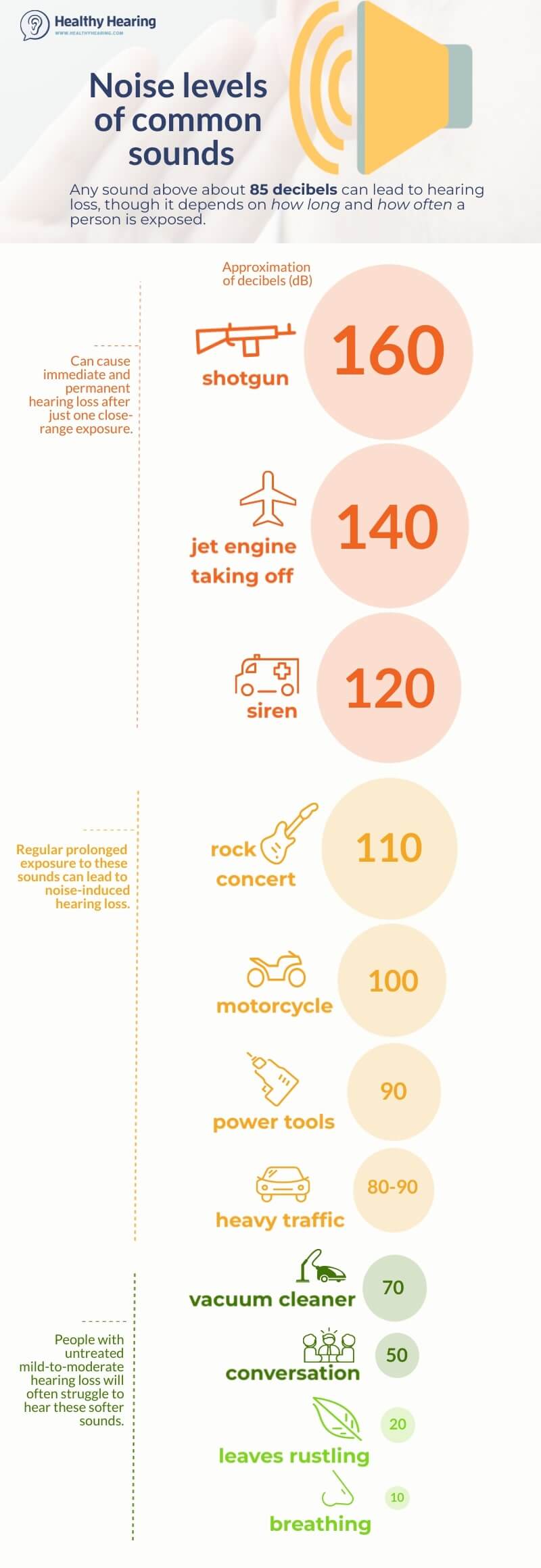|
www.HealthyHearing.com |
Fireworks, lawn mowers and concerts, oh my: Top unsafe summertime soundsGrab your earplugs and stay safe this season
Contributed by Joy Victory, managing editor, Healthy Hearing Anytime I hear someone in my neighborhood fire up a leaf blower or mower, I look out the window: Are they wearing hearing protection? Often they're not, and I wince, knowing that I'm watching noise-induced hearing loss unfold right in front of me. Many people don't realize just how dangerous sound can be, even in the loveliness of summertime. With that in mind, grab your earplugs and prep yourself for these common, potentially harmful seasonal sounds: Outdoor concertsIf you have to shout to be heard at a concert, it's WAY too loud
at outdoor concerts. You'd think outdoor concerts wouldn't be as harmful as indoor concerts, but that's incorrect: Unlike indoor concerts where the sound is absorbed, an outdoor venue causes the sound to disperse causing the band's sound techs to turn the music up even louder. Volume is measured in decibels. Concert sound levels are often in excess of 100 dB, well above the recommended 85 dB limit which is considered potentially harmful to hearing. In addition to choosing lawn seats and sitting away from speakers, pick up a pair of disposable earplugs before the concert. If you're a musician, make sure you use musicians' earplugs or in-ear monitors. Not sure what 100db sounds like? You can use a sound meter app on your phone. Or, follow this quick rule of thumb: If you and your friends can't hear each other speak without shouting, the music is most certainly damaging your hearing. More: How loud is too loud? Motorcycles, speedboats and convertiblesWind is noisy. Very noisy.Contrary to what you might think, it’s not the engine noise but the wind noise that can wreak havoc on your hearing. Riding a motorcycle at 65 miles per hour, especially if you don't wear a helmet, can produce wind noise levels in excess of 103 dB. To put it into perspective, that is louder than a chainsaw. And if the sound level exceeds 115 dB, just 15 minutes of exposure can result in permanent hearing damage. When boating, a simple pair of disposable earplugs will suffice. Depending on their state laws, motorcycle riders can best protect their hearing with a custom set of hear-through earplugs that will still enable them to hear road noise, sirens or honking cars. And, nothing beats putting the top down and taking the convertible out for a spin on the first sunny day of the season. But the wind, the roaring of the engine and noise of other vehicles can put a damper on your drive when you find yourself experiencing tinnitus (ringing or buzzing in the ears) or other symptoms of hearing damage. While it is not safe to wear earplugs while driving, you may be permitted to wear hear-through ear protection if your state's laws allow. If not, try putting the windows up to reduce some of the noise and don't travel long distances with your top down. Target shooting
hearing. Gunfire is a sure-fire way to damage hearingAs many as 40 million Americans participate in target shooting each year, putting themselves at risk of developing "shooter's ear." Almost all firearms create noise that is above 140 dB, enough to cause immediate hearing damage, and even the smaller caliber firearms are above 120 dB.
FireworksHome fireworks are especially dangerousFrom Memorial Day to Labor Day in the U.S., elaborate fireworks displays reign supreme. Most fireworks have sound upwards of 125 dB, which is loud enough to damage hearing. In addition to wearing earplugs yourself, protect your child’s hearing too. The noise levels of fireworks displays make them unsafe for babies and toddlers, but if you must bring them to a display, cover their ears with inexpensive lightweight foam-filled ear cups or Baby Banz. Earplugs are best for older children. If you or a loved one insists on buying home fireworks, please be extra careful, as they are not just bad for your hearing, they are responsible for countless ER visits every year. Professional baseball gamesCrowd noise is just the startNothing says summertime like the crack of the bat and the roar of the crowd. In the U.S., baseball is a time-honored tradition that, for many of us, epitomizes summer. In an effort to ramp up the excitement, stadiums these days are louder than ever. In addition to crowd noise, rows of speakers blasting rock music and fireworks celebrating home runs can make watching the game a deafening experience. A University of Michigan study found decibel levels of major league baseball games averaged 94 dB, but could reach as much as 114 dB. At 94 dB, anything more than 30 minutes of exposure puts you at risk of damaging your hearing. Wearing earplugs, and making sure your children’s ears are protected as well, can reduce the risk of hearing damage. Lawn mowers and leaf blowersOne solution: Let your yard go wild!A mower yard shouldn't lead to hearing loss later in life. Any noise measuring in excess of 85 dB has the potential to be harmful to hearing. Unfortunately, Most equipment used for yard work measures between 80 dB and 105 dB. Proper precautions can help you protect your hearing while maintaining your yard this summer. Electric equipment is quieter than gas-powered, and proper maintenance of equipment can reduce the noise level. My solution: I planted a native, low-maintenance pollinator garden and now my lawnmower just sits in the shed. Of course, trees are different and it can be hard to avoid the need for chainsaws and the like. So, be sure to wear earplugs or earmuffs when operating lawn equipment such as chainsaws, hedge trimmers, leaf blowers or lawn mowers. Car racesVroom-vroom can equal doom-doom for the earsFormula One, NASCAR, Indy car and stock car races have one major commonality: They are dangerously loud. Most races average between 90 and 115 dB depending on the types of cars, acoustics of the track space and viewing location. Sound levels can reach as high as 130 dB, the human hearing threshold for pain. This noise level puts spectators at real risk for hearing damage and tinnitus. If you are heading to the track, bring your earplugs. They won’t detract from your experience but they will save your hearing down the road. Also: Leave the kids at home for this activity, folks. Air showsThe sound pressure from jet engines can hurt children's ears (and yours!)Though the aerial stunts can be breathtaking, the noise of the jet engines quickly becomes ear-splitting when pilots venture close to the ground. Young children especially are vulnerable to hearing damage since shorter ear canals cause the sound pressure entering the ear to be greater. You would probably bring sunscreen, a hat and bottled water to an air show, right? So remember to bring ear protection for the entire family as well.
Bottom lineGet outside and take advantage of all that summer has to offer, but protect your hearing at the same time. If you are experiencing fullness in the ears, ringing or buzzing, be sure to see a hearing care professional right away. Joy Victory, managing editor, Healthy Hearing
|
Featured clinics near me
Hearing Health Solutions from Ohio ENT - Columbus
974 Bethel Rd Ste B
Columbus, OH 43214
Earzlink Hearing Care - Reynoldsburg
7668 Slate Ridge Blvd
Reynoldsburg, OH 43068


Find a clinic
We have more hearing clinic reviews than any other site!



 Joy Victory has extensive experience editing consumer health information. Her training in particular has focused on how to best communicate evidence-based medical guidelines and clinical trial results to the public. She strives to make health content accurate, accessible and engaging to the public.
Joy Victory has extensive experience editing consumer health information. Her training in particular has focused on how to best communicate evidence-based medical guidelines and clinical trial results to the public. She strives to make health content accurate, accessible and engaging to the public.